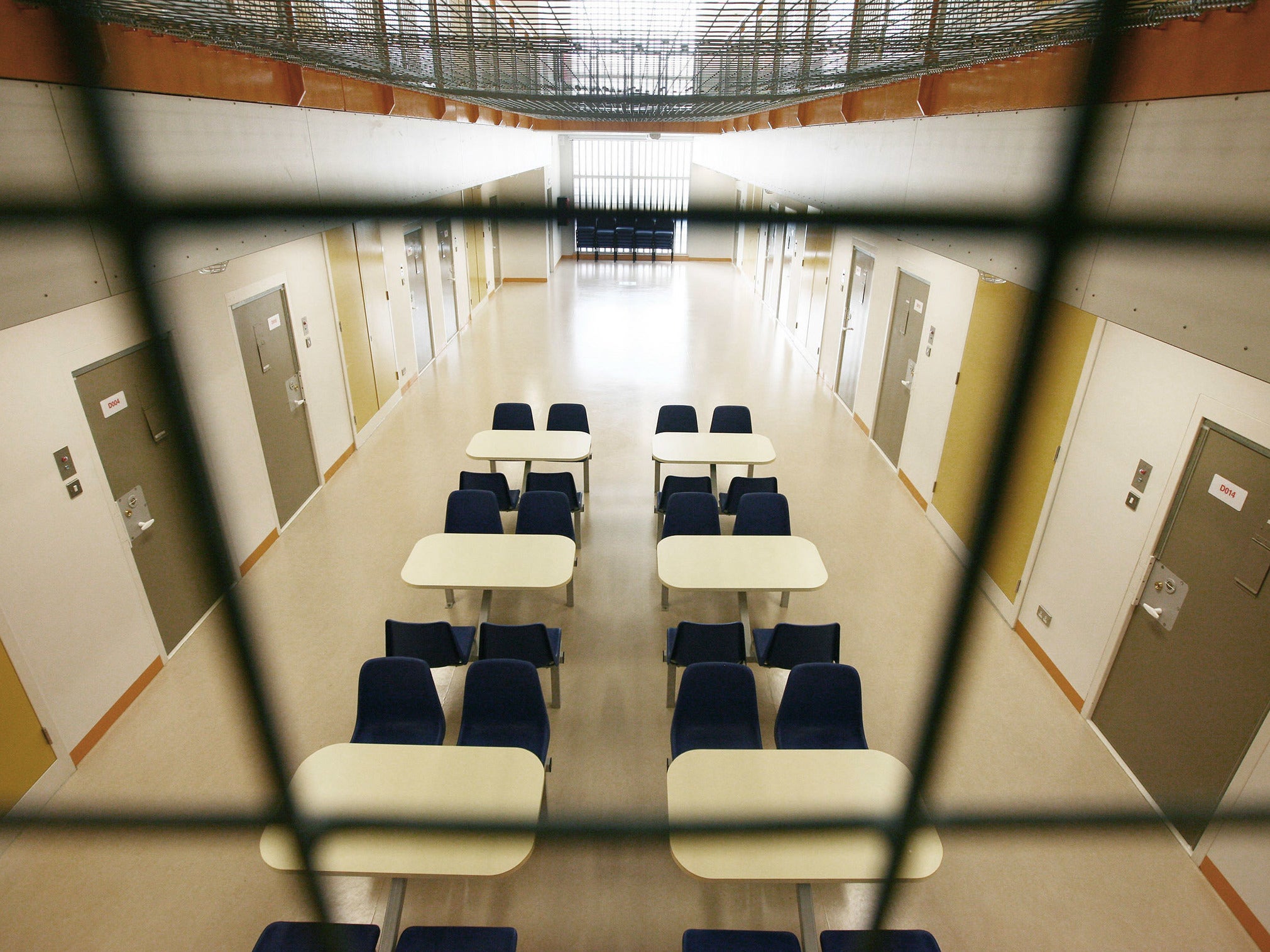Number of EU nationals being detained at immigration removal centres increases fivefold since Conservatives came into power
SNP accuses Government of being motivated by 'politics, not policing'

Your support helps us to tell the story
From reproductive rights to climate change to Big Tech, The Independent is on the ground when the story is developing. Whether it's investigating the financials of Elon Musk's pro-Trump PAC or producing our latest documentary, 'The A Word', which shines a light on the American women fighting for reproductive rights, we know how important it is to parse out the facts from the messaging.
At such a critical moment in US history, we need reporters on the ground. Your donation allows us to keep sending journalists to speak to both sides of the story.
The Independent is trusted by Americans across the entire political spectrum. And unlike many other quality news outlets, we choose not to lock Americans out of our reporting and analysis with paywalls. We believe quality journalism should be available to everyone, paid for by those who can afford it.
Your support makes all the difference.The number of EU nationals being detained at immigration removal centres has increased fivefold since the Conservatives came into power, figures show.
Critics accused the Government of being motivated by “politics, not policing”, but the Home Office said it was getting tougher on deporting foreign offenders.
Almost 1,300 EU nationals were detained in the third quarter of last year, compared with 242 when the coalition came into power in 2010, according to Home Office figures.
The vast majority are returned to their countries of origin, with a handful granted leave to remain, temporary release or being bailed.
Most detained EU nationals are men, with the number of women increasing from 20 to 168 in the same period.
The Scottish National Party (SNP) said Theresa May had presided over the increase during her time as Home Secretary, before becoming Prime Minister.
MSP Christina McKelvie, who chairs Holyrood’s human rights committee, said: “These are staggering figures – and the pace of the rise makes this looks like politics, not policing.
“Of course in some cases there is a justification for some people being detained and removed – but the massive rise and some of the reported cases are deeply concerning.
“The people that are being detained have the legal right to live and work in the UK, and they simply should not be being held in immigration centres like the hated Dungavel for months on end.”
Ms McKelvie said EU nationals make a valued contribution to Britain’s economy and society, adding: “The UK government must start treating them with the respect they deserve.”
Among the Europeans detained last year was included an Italian national held for eight months after losing his ID card and a Polish man imprisoned for five months after being arrested while having birthday drinks in a public park.
Most EU citizens recorded entering detention centres between July and September were from the Eastern European EU8 countries that joined the bloc in 2004, including Poland, Lithuania, Hungary, Slovakia and Lithuania.
The second-largest group were from the EU2 countries - Bulgaria and Romania – and the smallest from 14 western European nations like France, Ireland and Germany.
They held in more than a dozen centres across the UK, including the G4S-run Brook House near Gatwick, where undercover filming showed migrants being abused by guards.
Campaigners called for immigration removal centres to be shut down in the wake of the scandal and the deaths of several inmates, with four people known to have killed themselves last year.
Immigration removal centres are intended to be used only for short periods ahead of deportation but some inmates have been inside for more than five years and there is no legal time limit for detention.
A cross-party Parliamentary inquiry into the use of immigration detention previously concluded that people were being imprisoned “completely unnecessarily” in many cases and recommended a 28-day limit for immigration detention, which it said should be a “last resort”.
Across all nationalities, almost half of those detained are asylum seekers and more than half are eventually freed.
Among them is Samim Bigzad, an Afghan man who the Government attempted to deport twice last year after he said he had been threatened with beheading by the Taliban.
A Home Office spokesperson said: “We’re proud that so many EU citizens have built their lives in the UK, and we value their contribution. This is why we’ve safeguarded their rights as a first priority in the Brexit negotiations.
“However, the general public expect robust action to be taken against foreign national offenders who pose a risk to the UK, and we have toughened our response to those who abuse our hospitality by committing crimes.
“Decisions to remove or deport EU citizens are taken on a case by case basis and must be proportionate. As such, they apply only to a very small minority of EU citizens who are pursuing a course of conduct that most people consider to be socially harmful.”
Join our commenting forum
Join thought-provoking conversations, follow other Independent readers and see their replies
Comments